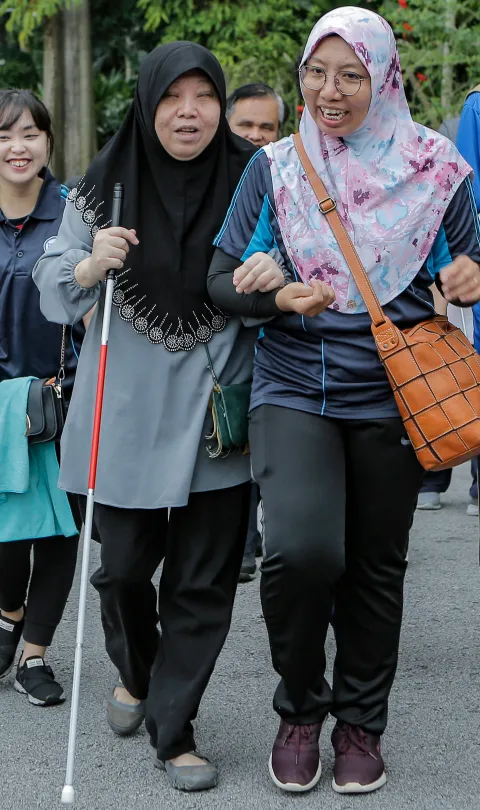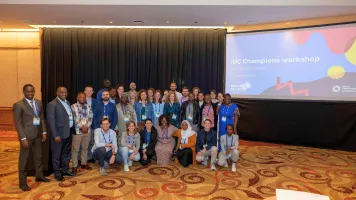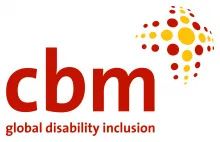This piece is part of a Global Disability Summit blog series from Inclusive Data Charter Champions.
Organizations of persons with disabilities (OPDs) must play a meaningful role in data collection, analysis, and use to have a clearer understanding of who is being affected, where, and why. OPDs’ engagement helps to identify and understand the specific barriers persons with disabilities encounter, and what policies and programs are needed to mitigate those barriers so that persons with disabilities are fully and equally included in society.
In response to many requests from OPDs, the Stakeholder Group of Persons with Disabilities, the International Disability Alliance, and CBM Global Disability Inclusion developed a disability data advocacy toolkit on how to advocate for data and how to advocate using data.
Emerging from the toolkit, UNFPA, and CBM Global Disability Inclusion—in close collaboration with the Stakeholder Group of Persons with Disabilities; the International Disability Alliance; and national and regional organizations of persons with disabilities, including the Pacific Disability Forum and ASEAN Disability Forum—established an innovative partnership to build capacity in and increase the quality of disability data in the Asia-Pacific region. The project ran through 2021, producing a regional report on the status of disability data in the Asia-Pacific region and carrying out disability data advocacy trainings for OPDs.
The report is based on a mapping that was carried out on the national collection of disability data from censuses and large household surveys in the Asia-Pacific region (36 countries) through UNFPA Asia-Pacific Country Offices. Organizations of persons with disabilities also shared their experiences around disability data. Information was gathered from relevant sources such as National Statistical Offices and other government focal points responsible for monitoring the Incheon Strategy indicators and corresponding Sustainable Development Goal indicators. Of the 36 countries, 20 responded. Some key findings include that:
- The level of knowledge and ease of collecting disability data varied widely across respondents.
- Only one in four respondent countries in the Asia-Pacific region could monitor critical disability-inclusion indicators relating to healthcare access.
- Only one in five respondent countries in the Asia-Pacific region were using internationally recommended methods for identifying persons with disabilities in their national data systems.
- Only in one in four respondent countries in the Asia-Pacific region were systematically identifying and reporting on barriers and enablers for persons with disabilities to access education.
- Most of the respondent countries have significant gaps in their overall technical capacity to produce critical development indicators on persons with disabilities.
- Although many respondent countries can disaggregate the indicators they produce, very few are using questions framed around functioning to identify persons with disabilities, for example, the Washington Group questions. This raises questions on the quality, usefulness, and comparability of the data.
- Many persons with disabilities are concerned about inadequate data and evidence around persons with disabilities, but do not feel they know enough to confidently use or advocate for better data.
As part of the project, two pilot disability data advocacy workshops for OPDs were carried out in November, 2021. The interactive workshop included eight modules and focused on OPDs to build capacity in understanding and using disability data and how to advocate for disability data and better disability data at the national level. The workshops were carried out in person in Samoa with 15 persons with disabilities and online from Nepal with 28 persons with disabilities. Both workshops were facilitated by local OPD representatives who were also data experts. Some workshop feedback:
- It was particularly helpful to link the training materials to local languages and contexts, especially to understand where local data comes from and how to access local data.
- It was beneficial to focus on all data processes, including data use, collection, and analysis.
- There is a need to strengthen internal data collection mechanisms for OPDs to address barriers to participation and to reach out to include marginalized groups.
- Having the training in person was more effective than online.
- It would be useful to set up a community of practice as a resource and to develop common concerns, to assist with understanding disability data, and to interpret data tools, such as the Washington Group questions.
- As a next step, it would be important to provide advanced training on analyzing and using data in advocacy.
Overall, the findings from this project indicate that data are essential for government officials and policymakers to fulfill the rights of persons with disabilities. Understanding what, why, and how data are collected is important to inform future advocacy and investment in disability data. Also, it is imperative to involve persons with disabilities and their representative organizations and ensure they can fully participate in all data processes.


